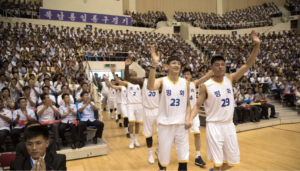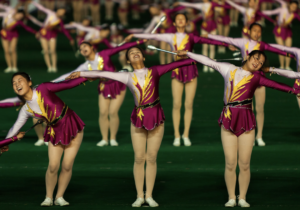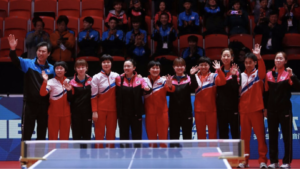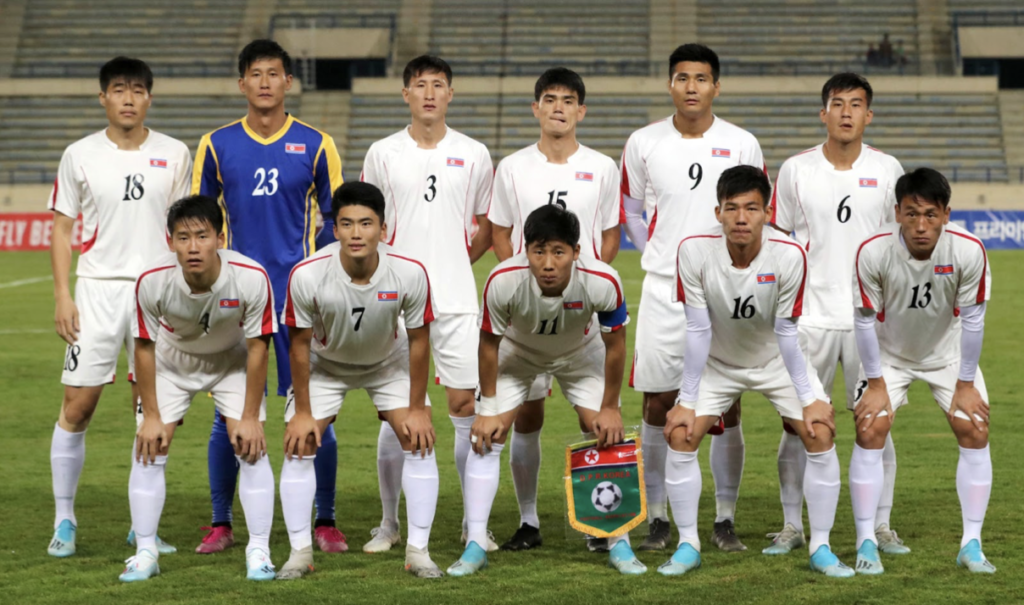Sports in North Korea, officially the Democratic People’s Republic of Korea (DPRK), offer a unique lens through which one can examine the nation’s culture, values, and societal dynamics. The closed nature of the regime and limited access to information makes it challenging to gain a comprehensive understanding of the sporting landscape. Nevertheless, available insights reveal that sports play a significant role in the lives of North Koreans, offering both physical activity and a platform for national pride. This essay delves into the diverse facets of sports in North Korea, exploring popular activities, the government’s role, the challenges faced, and the broader cultural implications.
Football: Football holds widespread popularity in North Korea. The sport is played at various levels, from informal matches in local communities to organized leagues. Football fields are common fixtures in both urban and rural areas, serving as gathering places for communities and fostering a sense of camaraderie. The national football league, though less publicized internationally, attracts fervent supporters, providing an avenue for citizens to express their national pride.

Basketball: Basketball has gained traction in North Korea, partly due to interactions with former NBA player Dennis Rodman. Although information is limited, basketball has found a place in schools and recreational areas. The sport serves as a form of entertainment and physical exercise, and friendly matches contribute to the overall sporting culture in the country.

Gymnastics: Gymnastics, particularly rhythmic gymnastics and traditional Korean gymnastics, holds cultural significance. The Arirang Festival, an annual mass gymnastics and artistic performance event, showcases the precision and discipline of North Korean gymnasts. This event is not merely a display of physical prowess but also a powerful expression of national unity and pride.

Table Tennis: Table tennis, or ping pong, is a widely played sport in North Korea. Its simplicity makes it accessible to people of all ages, and it is a common sight in schools and recreational areas. Tournaments and friendly matches provide opportunities for community engagement and friendly competition.
However, sports in North Korea are not only a form of recreation but also a tool for political propaganda and ideological reinforcement. The government actively promotes sports as a means of fostering national pride and loyalty to the regime. Athletes who excel in international competitions are often glorified and presented as symbols of the country’s strength and resilience.
The Mass Games, a series of highly choreographed performances involving thousands of participants, are a prime example of the government’s use of sports for propaganda. These events, which include gymnastics, dance, and other displays of athleticism, are meticulously orchestrated to convey messages of unity, loyalty, and the greatness of the regime.
While sports are an integral part of North Korean society, several challenges and restrictions hinder the development of a diverse and open sporting culture. The closed nature of the regime limits exposure to international sports events and hampers the exchange of ideas and techniques. Economic constraints may also impact the accessibility of sports equipment and facilities for certain segments of the population.
Moreover, the government’s strict control over various aspects of life, including sports, may limit individual expression and the evolution of sports as a form of personal development. Athletes are often expected to conform to ideological principles, and deviation from these norms can lead to severe consequences.
Sports in North Korea extend beyond mere physical activity; they are deeply intertwined with the nation’s cultural fabric. Participation in sports fosters a sense of community and national identity. The emphasis on traditional Korean martial arts like Taekwondo reflects a desire to preserve and promote cultural heritage.
The Arirang Festival and Mass Games, despite their propagandistic nature, serve as unique cultural phenomena that showcase the country’s commitment to precision, discipline, and collective achievement. These events, while staged for political purposes, contribute to the cultural narrative of North Korea.
Sports in North Korea extend beyond mere physical activity; they are deeply intertwined with the nation’s cultural fabric. Participation in sports fosters a sense of community and national identity. The emphasis on traditional Korean martial arts like Taekwondo reflects a desire to preserve and promote cultural heritage.
The Arirang Festival and Mass Games, despite their propagandistic nature, serve as unique cultural phenomena that showcase the country’s commitment to precision, discipline, and collective achievement. These events, while staged for political purposes, contribute to the cultural narrative of North Korea.
In conclusion, sports in North Korea offer a multifaceted perspective on the nation’s society, culture, and political landscape. Despite challenges and restrictions, sports play a crucial role in fostering community, national pride, and physical well-being. Understanding the complexities of sports in North Korea provides valuable insights into the lives of its citizens and the broader dynamics that shape the country. As the world continues to watch developments on the Korean Peninsula, sports remain a significant and intriguing aspect of North Korean society.

